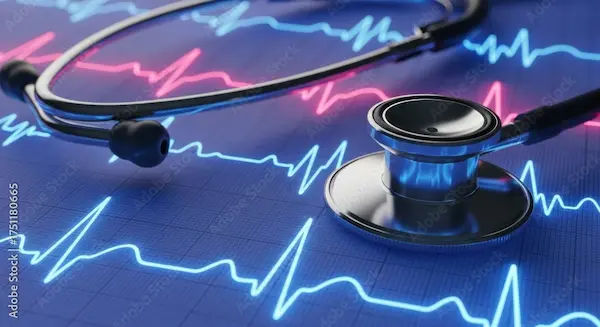- Male
- 24 Years
- 22/01/2025
My brother has been feeling some discomfort on the left side of his chest, and the doctor said his ECG is normal, just showing sinus tachycardia. He's really anxious and tends to worry about his health a lot, especially after recovering from COVID. We're wondering about getting an echo done, but the doctor suggested waiting a month. Is it okay to wait that long, or should we consider doing it sooner given his anxiety and constant thinking about his health?
Answered by 1 Apollo Doctors
Can delay the echo testing for up to one month after the ECG. It is important to monitor his symptoms during this time. Given his history of anxiety and hypochondria, it may be beneficial for him to consult with a mental health professional to address his concerns and manage his anxiety. It is also important for him to continue following up with his healthcare provider for further evaluation and guidance."
Dr. Mubarak Suggests...
Consult a Cardiologist
Answered 04/07/2025
0
0

More Cardiology Health Queries
View allWhen is it okay to stop taking Inderal LA 20 mg? I've been on it for about a month now for anxiety and because my blood pressure was a bit high, around 14085. I've managed to get those under control, so I'm wondering if it's safe to stop the medication. What do you suggest?
Inderal LA 20 mg is a beta-blocker medication used to treat high blood pressure and anxiety. Since you have been taking it for a month and have overcome your anxiety and your blood pressure is now under control, you can consider stopping the medication. However, it is important to consult with your doctor before making any changes to your medication regimen. Your doctor may recommend tapering off the medication gradually to avoid any potential withdrawal symptoms.
Answered by 1 Apollo Doctors
I'm dealing with high cholesterol and recently I've felt some pain in my left chest. I'm pretty worried about what this might mean. Should I be doing something specific or is there anything you recommend I look into?
It is important to manage your high cholesterol to reduce the risk of heart-related issues. You can start by taking Atorvastatin (brand name Lipitor) at a dosage of 10-20 mg daily to lower your cholesterol levels. Additionally, if you are experiencing chest pain, you can take Aspirin at a dosage of 81mg daily to help reduce the risk of blood clots and relieve chest pain. However, it is crucial to seek immediate medical attention if you experience severe or persistent chest pain.
Answered by 1 Apollo Doctors
I'm really worried about this whole ECG report thing. It showed some ST segment downslope depression during my pre-employment medical exam. Then I did an echocardiogram with a color doppler test, and it shows DRA grade 1 with this E wave A wave stuff, whatever that means. There's no RWMA but the systolic is normal. The doctor didn't give me any meds except for blood pressure medicine. Is it really okay? What does this all mean? Would love some guidance on this.
"Based on the information provided, it seems like you have a normal ECG with ST segment downslope depression and a Doppler test showing DRA grade 1 with Ewave> A wave, no RWMA, and normal systolic function. Since your doctor has only prescribed blood pressure medication, it indicates that there are no significant cardiac issues requiring specific treatment at the moment. However, to further support your heart health, you can consider taking a low-dose aspirin (75-100mg) daily for its cardioprotective benefits. Additionally, incorporating lifestyle modifications such as regular exercise, a heart-healthy diet, and stress management can also be beneficial. It's important to continue regular follow-ups with your doctor for monitoring and guidance."
Answered by 1 Apollo Doctors
Disclaimer: Answers on Apollo 247 are not intended to replace your doctor advice. Always seek help of a professional doctor in case of an medical emergency or ailment.





